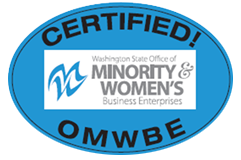The importance of soft skills has emerged these past few years. This has thrown a lot of people into a loop. After all, there’s always been more of an emphasis given to hard skills. Many people are not even sure what soft skills are and how they matter.
Consider the teachers you’ve had in school. I bet there was one teacher who made the class interesting. You might not have liked the subject but you learned. There’s a good chance that the teacher was passionate and creative. They might even have a flair that made even dull subjects come alive. Compare that to instructors who are smart but don’t know how to engage their students. They have the hard skills to teach the class. But they lack soft skills like empathy to make a connection with you. Now ask yourself which one is better.
That’s the same argument one could have when it comes to work. Many employers today are always torn between hard skills vs soft skills. But is one skill better than the other? We want to help you get to the bottom of things.
Understanding Hard Skills
Hard skills are technical skills. They’re functional and measurable. It’s the knowledge that you’ve gained through various life experiences. For example, you develop it by studying or training for it. You can also learn it in your job.
A critical aspect of hard skills is that it’s verifiable. You can check your skill through assignments and individual tests. The results are then compared against predefined and specific criteria.
Reading, writing, and computer programming are examples of hard skills. Being adept at using Microsoft Excel because you studied accounting is a hard skill. So is being fluent in a foreign language.
Knowing the Nuances of Soft Skills
These are skills considered to be “soft” because it’s difficult to measure them in a specific manner. These are the personal traits and habits that people have. They impact how an individual works, whether alone or with others.
Soft skills can be how well a person works with a team. It can be the leadership qualities one has or their ability to persuade others. Creativity and flexibility are also considered soft skills. What makes soft skills different is it’s not all about other people. These are skills that one can also apply to themselves. For example, having the ability to focus or being open-minded.
The challenge with soft skills is they’re not measurable. There are no criteria-based exams that will determine your skill level. The presence of this skill only manifests as a response to different situations.
What Skills Do Employers Prefer?
Companies today are looking for people with both hard and soft skills. The two appear to be polar opposites. But they’re equal in importance.
Many professions need specific hard skills. You have to develop them to achieve success. The lack of particular hard skills would mean instant failure. Even then, the right soft skills will help you develop the hard skills you need. It will also ensure you know how to use your technical expertise well.
Take doctors for example. You might be the top surgeon in the hospital. Your skill with the scalpel is a hard skill. But if you’re impatient and have a short temper, you won’t get far. Patience and empathy are soft skills that will help you connect with your patients.
Why are Soft Skills in the Limelight?
It doesn’t matter what your job is, you need a good balance of hard and soft skills. But it seems many employers are paying special attention to that ephemeral skill set. It’s because the way we do business has changed.
A customer used to be dependent on the available supply. But consumers today are always spoiled for choice. Customer service is now a critical aspect of every business. The company that provides the best product isn’t guaranteed to win. Especially if they can’t provide their customers with the right support.
Service is intangible. Employers need people with empathy and patience. They need workers who can build rapport and close deals. These are soft skills that can determine if a company will succeed or fail.
Hiring People with the Right Skills
Seattle Financial will make sure your company hires the right employees. We’re a financial staffing agency company based in Washington. But we help businesses in California and Colorado find the ideal staff. We work with accounting, construction, and manufacturing companies. We’re also recruiting for sales and HR. Call us at 206-343-8732. You can also send us a message at recruiting@seattlefinancial.com.




